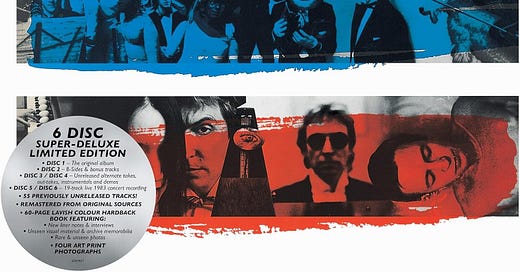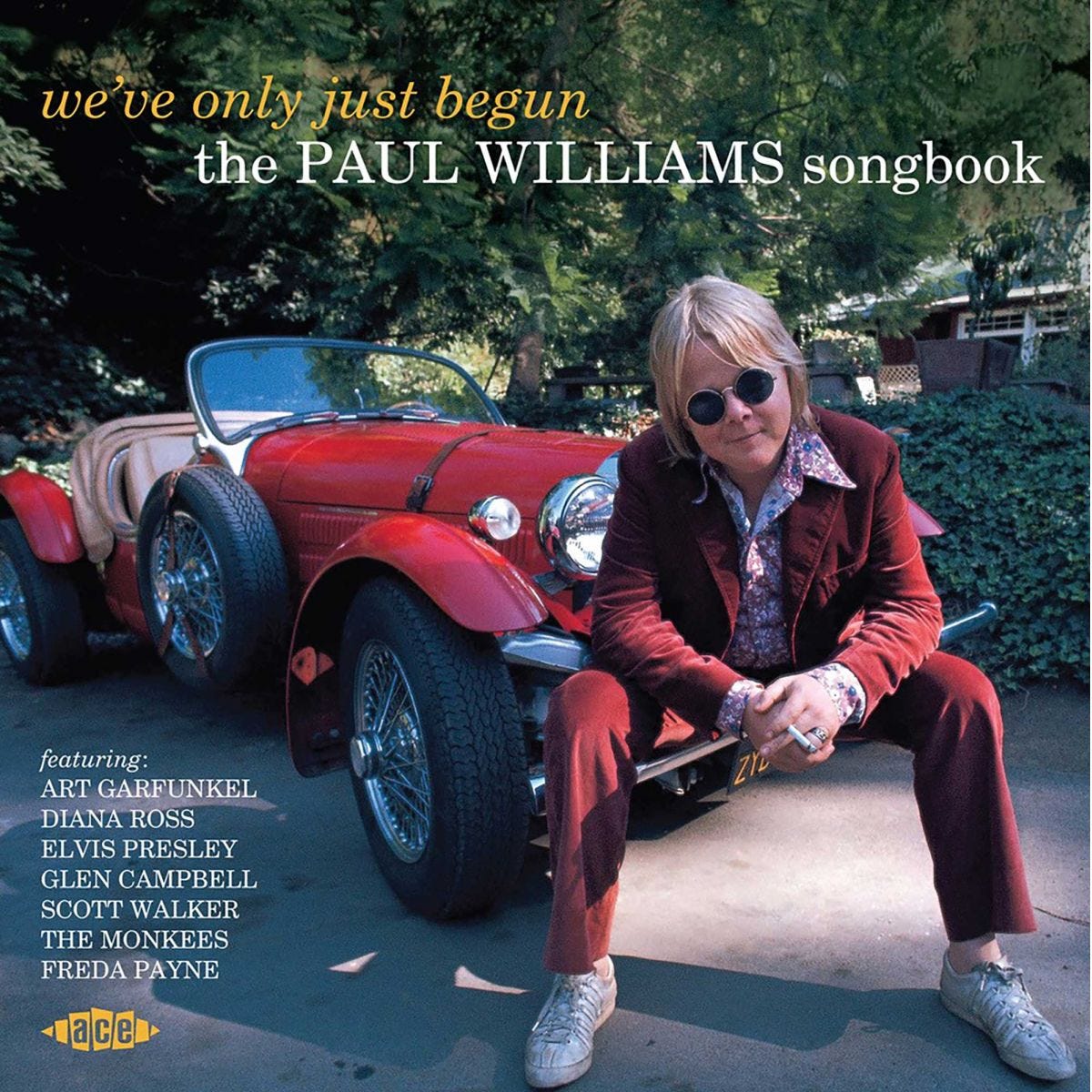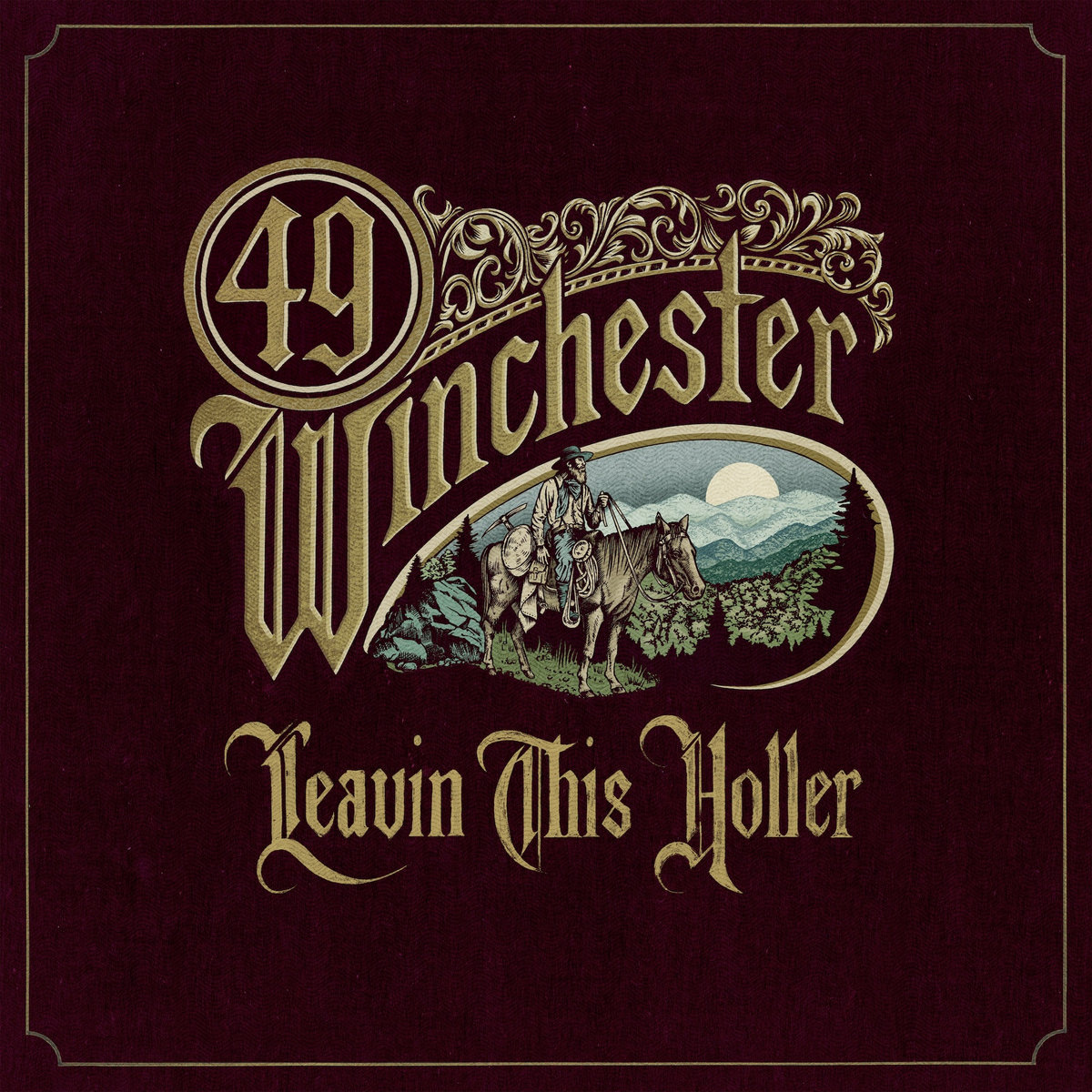On the Stereo, 8-9-24
The Police expand Synchronicity, Bob Stanley compiles The Paul Williams Songbook, Spoon, Little Feat, Megan Moroney, 49 Winchester
I'm still in the throes of a transition spurred by losing my job at Xperi, the home to the database that was once called Allmusic. As I've been juggling several things, I'm down to one single newsletter this week—another roundup of music that's made an impression upon me recently. (I plan to run one of these each Friday, eventually transitioning these entries to paying subscribers this fall, so please subscribe! But there will still be plenty of free content!)
The Police—Synchronicity [Super Deluxe Edition] (2024; 1983)
"Masterpiece" always seemed to strong a word for Synchronicity, the farewell album from the Police that rivaled Michael Jackson's Thriller in popularity in 1983. Maybe my childhood memories of skipping Stewart Copeland's "Miss Gradenko" and Andy Summers's "Mother" are too ingrained in my subconscious to think of Synchronicity as anything other than lopsided: all the weirdness is shoved into the front, leaving nearly all the hits for the back half of the record
A revisiting prompted by a six-CD Super Deluxe Edition of Synchronicity—the first expansion of any of the Police albums and, really, the first ever exploration of the trio's vaults—confirms that some of my long standing beliefs concerning the record seem correct. Synchronicity is indeed misshapen, veering left on a quest for art and atmosphere whenever it threatens to gain momentum. Its inherent imbalance accentuated by having its omnipresent hit "Every Breath You Take" kick off a parade of hits on the album's second half. Maybe the years of the singles saturating public consciousness but upon this listen, I found myself preferring the ungainly first side. Now, the manic claustrophobia of "Mother" seems appealingly mad, "Miss Gradenko" benefits from its percolating afrobeat and the flattened funk of "O My God" is a welcome reminder of the elastic grooves of Zenyatta Mondatta.
More than anything, these numbers—along with Sting's Jungian obsession and his absurd question "Hey, mighty brontosaurus/Don't you have a lesson for us?" on "Walking in Your Footsteps"—gives the Police a demonstrable personality, one that's been eroded in the subsequent decades of classic rock repetition. That personality is accentuated on the wealth of unreleased bonus material on this Super Deluxe Edition because this is the rare box where it's possible to hear the band shape demos into something that is distinctly their own. The first demo of "Every Breath You Take" feels barren without Summers's stairstep guitar riff, "Synchronicity II" lacks its arena gusto, "King of Pain" feels stiff and stilted, aching for the eerie undercurrents of the completed version. The group's collective chemistry transforms these songs, a process that makes the finished album seem more impressive if not necessarily more coherent.
(Another part of that personality? The Police sound absolutely at sea covering Eddie Cochran's "Three Step to Heaven" and Chuck Berry's "Rock and Roll Music." They have no patience for that old time rock & roll.)
We've Only Just Begun: The Paul Williams Songbook (2024; 1968-1979)
The reign of Paul Williams lasted roughly a decade—a period inaugurated by the Monkees cutting "Someday Man" as a B-side and closed by "Rainbow Connection" serving as the theme song for The Muppet Movie. Those bookends illustrate Williams's comfort with Hollywood, a gift that he parlayed into a screen stardom that dwindled along with his musical career in the early 1980s. The particulars of that trajectory are covered in the 2011 documentary Paul Williams: Still Alive. This collection, compiled by Bob Stanley of Saint Etienne, concentrates on that golden decade, the one that produced such enduring modern standards as "We've Only Just Begun," "Rainy Days and Mondays," and "An Old Fashioned Love Song." Those three songs alone highlight how Williams thrived within the confines of adult contemporary and while We've Only Just Begun: The Paul Williams Songbook by no means undercut the notion of Williams' status as an easy listening master, it does show how he could be hipper than that label suggests. David Bowie covered "Fill Your Heart," a song included here in its original version by its co-writer Biff Rose, while Scott Walker gave "We Could Be Flying" a snazzy interpretation from his maligned album Any Day Now that's thankfully included here. Many big names and a few big songs from the Williams catalog are absent—there's nothing from the Carpenters or Barbra Streisand here—but Stanley's decision to balance AM pop obscurities with movie themes from Glen Campbell and Seals & Croft, bubblegum remnants from the Peppermint Trolly Company and selections from Williams' own discography, both on his own and with the Holy Mackerel, captures not only the range of the composer but the Southern Californian excesses of the era.
Spoon—They Want My Soul [Deluxe More Soul Edition] (2024; 2014)
The lone album Spoon released on Loma Vista before returning to the indie status with Hot Thoughts—the 2017 album that inaugurated their relationship with Matador, a partnership that continues to this day—They Want My Soul vaguely suggests a major label move in how it finds the band painting on a larger canvas. Some of this impression certainly derives from their decision to collaborate with Dave Fridmann and Joe Chiccarelli, a pair of producers (who are pointedly not co-producers) that help broaden the Austin band's sound, allowing them to indulge in atmospherics without losing sight of hooks. This "Deluxe More Soul Edition," a digital expansion commemorating the tenth anniversary of the album's release, spotlights Spoon's accomplishment by adding a disc of lean, tuneful home and band demos that highlight how much feel the band conjured in the studio. It's instructive and entertaining, deepening the appreciation of how Spoon flexed their muscles here.
Little Feat—Feats Don't Fail Me Now [50th Anniversary] (2024; 1974)
I used to dismiss Feats Don't Fail Me Now because unlike, say, Sailin' Shoes, it rolls so easy. Only in the past few years, I've realized that I put it on more often than Sailin' Shoes, Little Feat and even Dixie Chicken, maybe because it captures Little Feat where they're as tight as they are funky. The bonus material on this new expanded 50th Anniversary edition helps hammer that aspect home. The studio outtakes on the second disc are charmingly ragged—particularly a version of Allen Toussaint's "Brickyard Blues," which captures much of the New Orleans ramble of Dixie Chicken—while the live Parisian concert on the third disc doesn't feel as loose and amiable as Waiting For Columbus; even when the Feat stretch out for nearly twenty minutes on a medley of "Cold Cold Cold/Dixie Chicken/Tripe Face Boogie," they feel gritty.
Megan Moroney—Am I Okay? (2024)
Megan Moroney takes some big swings on Am I Okay?, the swift sequel to her excellent 2023 debut Lucky. Streamlining her sound so it suits the grand scale of arena-country, Moroney grounds her outsized power ballads with nakedly emotional lyrics that flirt with confession. It's a style she's dubbed "Emo Cowgirl"—a catchy phrase and one that generally fits the title track on "No Caller ID," yet it's ultimately undone by her proclivity to pull punches. She'll set herself up for a profane punchline then come up short on delivery, she prefers the sweet to sour in her melodies. Underneath all the style and slogans, her heart belongs to Nashville, which means she'lla always choose a polished path. Am I Okay? still has its moments: the snappy "Man on the Moon" bends its three-chord boogie toward radio-ready New Wave, while "Miss Universe" pulsates to AOR power chords that threaten to get greasy, a slight hint of dirt that would've been welcome elsewhere on the record.
49 Winchester—Leavin' This Holler (2024)
Virginia's shaggy Winchester have no interest in discovering unexplored dimensions of Southern Rock on their second album, Leavin' This Holler. Stripping away some of the folkier aspects of their 2022 debut Fortune Favors the Bold—it's still there, primarily in the ballads, usually used as an accent, although "Yearnin' for You" does nod toward bluegrass—the group concentrates on lean rockers and brawny grooves. As much fun as the revved-up boogie "Hillbilly Happy" is, 49 Winchester's knack for sounding nimble and robust on such lazy rambles as "Rest of My Days" and open-road anthems as "Traveling Band" is why Leavin' This Holler provides an excellent soundtrack to a hot summer day.
X—Smoke & Fiction (2024)
A big fan of ALPHABETLAND, the 2020 album that found the original lineup of X returning to the recording studio for the first time in 35 years, I found Smoke & Fiction to be an even better record. Further thoughts at my review for Pitchfork.










That's a good way of articulating Spoon sounding bigger on They Want My Soul, easily my favorite post-2000s album of theirs. To be a pedantic ass, putting out Hot Thoughts on Matador was actually a full circle moment as they put out their first album Telephono on there back in 1996 (I think also 1997's Soft Effects EP).
As ubiquitous as Paul Williams was in the 1970s on several fronts - he wrote hits for Barbra Streisand *and* appeared in a Planet of the Apes movie as a thoughtful orangutan! - I still think he's underrated as a pop writer. I'll definitely have to check out his songbook release you've covered well here. Thanks!